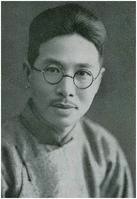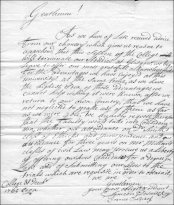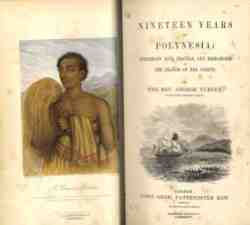As a 23 year-old Chinese postgraduate of the University of Glasgow, I had only heard the name “Yuan Chen” (Xi-Ying Chen) once, from an an article in a Chinese textbook. However, when I undertook the Club21 International Story project, I came across the name again – a Yuan Chen enrolled as a student of the University of Glasgow in 1915. My only difficulty was finding the evidence to link this historical Glasgow student with the famous scholar of the same name. His name being quite common in China, similar to John Smith in the UK.
His name being quite common in China, similar to John Smith in the UK.
However, I think I have made the links, and hope you could enjoy this story.
In China, an upper-class has always existed; among the “blue-blooded” were the families of the royals (before Qing Dynasty), officeholders, scholars and businessmen. Chen’s family can be considered to be among these families.
In 1912, the Republic of China was established in Nanjing (Jiang Su Province) by Zhong-Shan Sun, who is also called the “father of the nation”. It is a big day in Chinese history, since the feudal dynasty which lasted for over 2000 years had perished. Yuan Chen experienced this moment, which happened quite near to his hometown Wuxi (Jiang Su Province). He witnessed not only the celebrations but also the battles that preceded them. And it was after this experience that he started his journey to the UK.
Chen came to Scotland accompanied by his uncle, Jing-Heng Wu. Wu was a famous anarchist, an educator and a calligrapher, as well as a close friend of Zhong-Shan Sun (the father of the nation). Wu had also launched an initiative of “work-study in France” with Chen’s father, Yu Chen (Zhong-Ying Chen), who had established the first local institutional primary and secondary school in 1893. From 1841, China had been heavily inflicted by war for almost one hundred years until 1949, and therefore the only people able to go abroad were those from the upper-classes.
The student record of Yuan Chen is limited to a thin sheet of paper – the only evidence that he had studied at University of Glasgow as an Arts undergraduate student. This fact has until now not been recognised in the biographies and studies on Yuan Chen. After one year at Glasgow, Chen went on to the University of Edinburgh, from where he received his MA. He then graduated PhD from the London School of Economics in 1922, aged 26.

Yuan Chen matric slip 1915-16
During his academic years in Scotland and England, his literary talent saw him forge friendships with prominent literary figures as Wales, Russell, Shavian, Yuan-Pei Cai, Zhi-Mo Xu. All of them, including Yuan Chen, have had a profound impact on the development of Chinese literature and Chinese Democracy building. As China did not have many (academic) doctors like Yuan Chen at that time, when Chen qualified PhD, he was invited by Yuan-Pei Cai, the principle of Yanking University (the predecessor of Peking University), to be the professor of the Foreign Language Faculty of this, one of China’s, most prestigious institutions.
During a visit of the prestigious poet Rabindranath Tagore to China in 1922, Yuan Chen was charged with organising his welcome reception. This is where he met his future wife, Shu-Hua Ling, an undergraduate student of Yanking University, who delivered a speech on behalf of all students at Tagore’s welcome meeting, and who would become a famous literary name in her own right. Zhi-Mo Xu, a famous Chinese poet regarded her as a “Chinese Katherine Mansfield”.
In 1928, Chen was working as Dean of the Faculty of Arts in Wuhan University (Hubei Province), but decided to leave China after long academic dispute with a fellow literati (Xun about Chinese article style and college students movements). Chen joined the Kuo Min Tang (the Nationalist Party) and moved to the UK where he worked as the KMT government’s first Permanent Representative of United Nations Educational,Scientific, and Cultural Organisation (UNESCO) in London.
Regretfully, Yuan Chen never returned to China. He died in 1970. His obituary was given full-page coverage in The Times as well as receiving a memorial speech from Hao-Yun Dong. Yuan’s wife returned his ashes to the family tomb in Wuxi, which is currently being considered as cultural heritage site of Jiangsu Province.
Happy Chinese Lunar New Year!
By Xinyang Yu, MSc Media Management, China, Club21





















